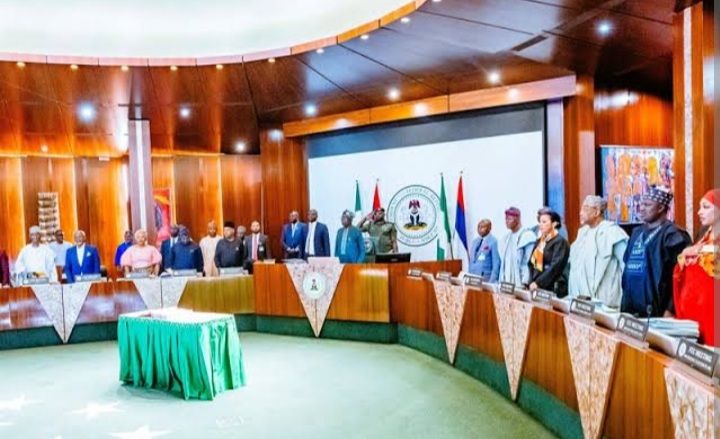The Federal Executive Council (FEC) has approved road infrastructure contracts worth N4.2 trillion, covering the second phase of the Coastal Road from the Calabar end, key highways and bridges across the country.
This was announced by the Minister of Works, David Umahi, at the end of the Council meeting chaired by President Bola Tinubu yesterday in Abuja.
According to Umahi, the projects span several states, with a focus on enhancing connectivity, improving road safety, and supporting economic growth.
The contracts include new constructions, rehabilitation of deteriorating sections, and expansion of critical routes, with many projects shifting towards concrete pavement for durability.
The largest allocation went to the Lagos-Calabar Coastal Highway, with FEC approving N1.334 trillion for the construction of a 130-kilometer dual carriageway.
The project will be executed under an Engineering, Procurement, and Construction (EPC) framework with a 10-year maintenance plan.
FEC approved N470.9 billion for the Delta State access road and N148 billion for the Anambra State access road to the Second Niger Bridge.
According to Umahi, both roads will be constructed using concrete to ensure long-term resilience.
Lagos-Ibadan Expressway (Phase 2, Section 1) got N195 billion approval to undergo reconstruction under the Presidential Infrastructure Development Fund (PIDF), focusing on improving traffic flow and reducing congestion along the busy corridor.
The Abuja-Kano road project, previously handled by Julius Berger, has been restructured into two lots following contract termination including Lot 1 (FCTNiger boundary): Expanded by 5.71 km towards Kogi State and Lot 3 (Kano section): extended by 17 km.
The minister said the total length of the project is now 118 km, with solar street lighting planned throughout. Section 1 will be built with concrete, while Section 3 will use asphalt.
The reconstruction of three sections of the Lokoja-Benin road would be done entirely with concrete for durability at N305 Billion including Obajana to Benin (Section I): N64 billion; Auchi to Edo (Section II): N110 billion and Benin Airport area (Section III): N131 billion.
A contract worth N3.571 billion was approved for an extensive structural assessment of the Third Mainland Bridge and Carter Bridge in Lagos.
He said this evaluation aimed to prevent further deterioration, building on findings from assessments conducted in 2009 and 2013, which identified progressive structural decay.
Council also approved Ado-Ekiti–Igede Road Project (N5.4 Billion) as part of a series of smaller road upgrades in Ekiti State to improve local connectivity and reduce travel time. The Onitsha-Owerri Expressway – N22 Billion.
The expressway would undergo rehabilitation to ease movement between Anambra and Imo States, fostering trade within the southeastern region.
Musasa-Jos Route (Kaduna State) was approved at N18 Billion to enhance road safety and reduce travel time between Kaduna and Plateau States.
Abia and Enugu State Road Project got N12.75 Billion in a joint project in Abia and Enugu states that will focus on key sections within the budget limits, addressing long-standing infrastructure gaps.
Umahi emphasized that most new projects, including the Lokoja-Benin and Abuja-Kano roads, would be constructed using reinforced concrete pavement instead of traditional asphalt.
He said: “Concrete roads are not only more durable but also cost-effective in the long run. “In fact, the cost of these concrete projects is significantly cheaper than previous asphaltbased contracts rejected by some contractors.”
The minister addressed concerns about terminated contracts, particularly with Julius Berger, clarifying that the government has negotiated cost-saving measures. Equipment from previous contractors would be repurposed, avoiding unnecessary mobilization costs.
Umahi also dismissed recent media reports about fake companies being awarded contracts, assuring Nigerians that due diligence was followed in selecting credible contractors.
He said: “We’ve resolved misunderstandings with key stakeholders, including media organizations, to ensure transparency. The companies handling these projects are legitimate and wellequipped.
“This is not just about roads; it’s about driving Nigeria’s economic transformation. “We are committed to delivering durable, cost-effective infrastructure that will stand the test of time.”
The Council also approved road construction projects worth about N159.5 billion for the Federal Capital Territory (FCT), targeting infrastructure development within the city and its satellite towns.
The Minister of State for the FCT, Mariya Mahmoud Bunkure, disclosed this during a post-FEC media briefing, detailing the five major projects aimed at improving accessibility and urban development.
The include Bus Terminal Access Road, Mabushi awarded to Messrs SETRACO Nigeria Limited at the cost of N30.97 billion; Arterial Road from Wuye District to Ring Road II at the cost of N62.5 billion and KujeGwagwalada Dual Carriageway at N7.49 billion.















